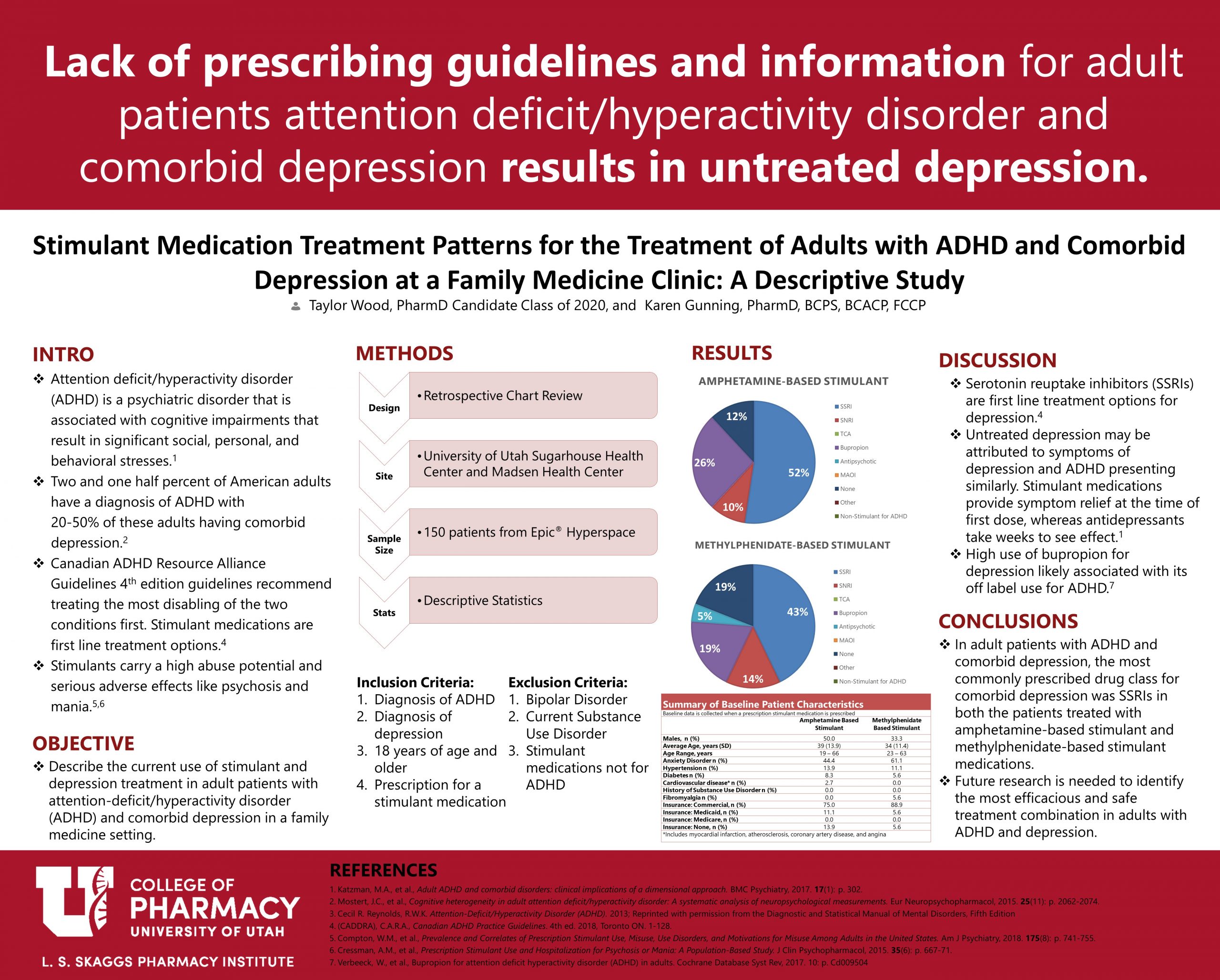
Abstract
Purpose
Attention-deficit/hyperactivity disorder (ADHD) is a psychiatric disorder that results in significant social, personal, and behavioral stresses. Adults with ADHD have a high prevalence of comorbid psychiatric comorbidities, with major depressive disorder (MDD) occurring in 20-50% of patients. Current guidelines recommend treating the more disabling of the two conditions first leading to many patients treated with stimulants alone. Stimulant medications are not without risks and do not treat, and may exacerbate concomitant mental health conditions. Therefore, the objective of this study is to understand the current use of stimulant and other medication therapies in adult patients with ADHD and comorbid depression in a family medicine setting, in order to improve care, safety, and reduce adverse effects.
Methods
This descriptive retrospective chart review sampled patients of a family medicine clinic. Patients included were 18 years or older, had a diagnosis of ADHD and depression, and were prescribed a stimulant medication. Medication treatment patterns were described by drug class.
Results
35 patients were treated with an amphetamine-based stimulant and 17 were treated with a methylphenidate-based stimulant. The most commonly prescribed treatment for depression was a selective serotonin reuptake inhibitors (SSRIs) with 9 patients having no depression treatment.
Conclusions
In adult patients with ADHD and comorbid depression, the most commonly prescribed drug class for depression was SSRIs in both the patients treated with amphetamine-based stimulant and methylphenidate-based stimulant medications. Future research is needed to identify if this is the most efficacious and safe treatment combination in adults with ADHD and depression.